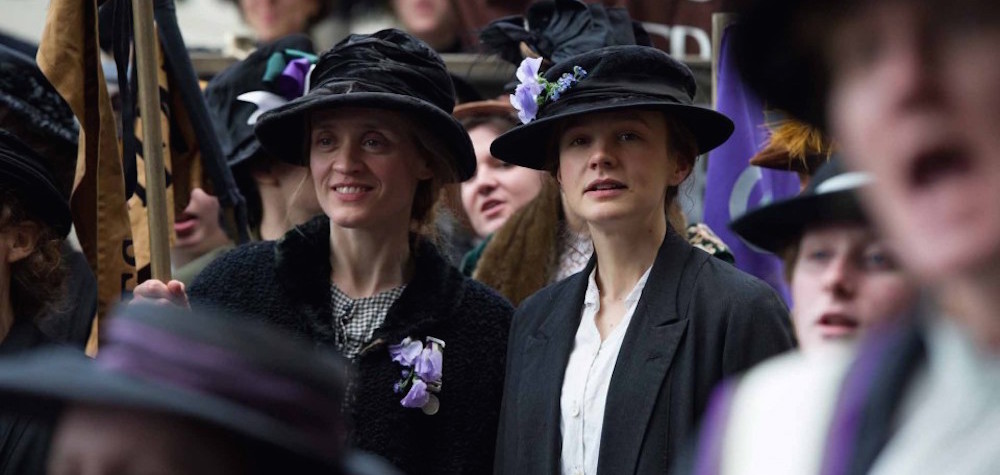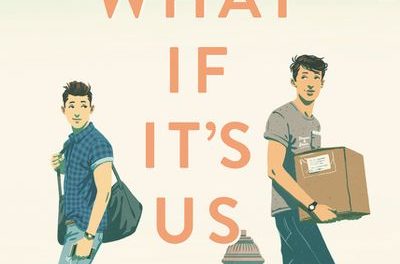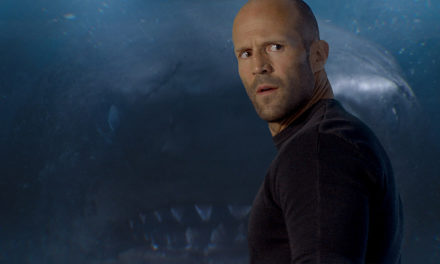There’s a very specific sub-genre of drama that I think of as the “cinematic vegetables.” They’re films that insist they’re “grown-up,” that in order to be a proper person you must watch them. They usually involve British people in period costumes speaking in shouts and whispers about important things like love, honor or, more often than not, an important historical event.
(For those of you wondering, yes, I am a 12-year-old who reviews movies.)
And my problem is that often — not always — these are cinematically dull films without an interesting command of the visual language that coast on strong performances and a story that demands you to take it seriously without ever proving itself. These films, like The Imitation Game, resemble filmed theater (in that they are about the words and the performance, with little regard for the unique visual elements of film) more strongly than anything really cinematic, which is a shame because of how often these films tackle relevant issues;films that address big issues deserve to be much grander in their scope and construction.
A case in point: Suffragette.
Suffragette tells the story of the suffrage movement and its fight for voting rights in early 20th century Britain. This movement was the more militant arm of the women seeking the right to vote, and seeking to secure them through demonstrations of civil disobedience.
We follow this movement through Maud Watts (Carey Mulligan), a young mother living in the poorest area of London. Watts works in the laundry where she was born, where her mother was born and where she expects to die as well. But when she sees one of her co-workers, Violet Miller (Anne-Marie Duff), engaging in a bit of window smashing, it causes her to join the Suffragettes. Watts risks everything she has, including her job, her husband (Ben Whishaw), and worst of all, her son, who is taken from her and given up for adoption. But she knows that her mission is too important for her to stop.
First off, it’s clear that this is an incredibly important story to tell. It’s one that reminds us of the importance of our vote by showing the struggles that people went through to earn the right to participate in the political process, as well as reminding us of the fact that women were still unable to participate just 100 years ago. The issues that these women faced (sexual assault, lack of education, muting of their voices in the political process) are still very real today.
So, it’s an absolute shame that there’s not a more vital film to tell this story.
Suffragette should be ready to roar with angry energy to help the audience understand the passion and the vitality of the movement. It should be the kind of film that inspires you to get out there and change something yourself. Whether it’s a consequence of the time period or a consequence of the filmmaking itself, Suffragette is absolutely not that.
It’s a dull film about an exciting time. Much of this dullness is attributable to the nature of the story’s construction. Many of the characters in Suffragette are composites, fictional characters made up of multiple real women or representative of larger forces at the time. The only two historical characters are Emmeline Pankhurst (Meryl Streep), who is a rallying figure with no more than two minutes of screentime, and Emily Davison (Natalie Press), who serves an important real life role in the climax of the film. Everyone else has no real grounding, and therefore must be reserved to watch the going-ons of the movement (as having their characters too heavily involved would fictionalize the movement in a way Suffragette doesn’t aim for).
This means that much of what we do is watch Watts observe, stand back and sit in back rooms a few feet behind real world events, her half-lidded eyes expressing the emotion that her actions don’t. That, combined with a generally gray and drab London without any interesting visuals means that Suffragette spends a whole lot of time feeling like an episode of Masterpiece Theatre, and less like a film about radical revolutionaries.
And to the credit of Suffragette, the performances are good. Mulligan’s Watts is infused with the same deep relatability that all of Mulligan’s characters are infused with; she becomes an almost perfect cipher for this movement. Anne-Marie Duff debuts a wonderful supporting ability as Violet Miller, and Helena Bonham Carter reminds us how well she can act when she isn’t caked with the makeup of a Tim Burton role.
But as I said, that’s par for the course for these sorts of films. They’re well-acted, usually fairly well-written (if a bit clichéd) and good pieces of filmed theater, but Suffragette doesn’t take the next step to show any sort of blood coursing through its veins.
The suffrage movement deserved a film, and I’m glad it got one — especially one that was, at least, competent. But it deserves to get a film that feels as alive and as passionate as the movement itself did.
Suffragette is not that film.
Grade: C
Suffragette is playing at the UA Tara 4.
Opinion Editor | Brandon Wagner is a College Senior from God Only Knows Where, America studying Film and Media Studies with a minor in Religion. This is his first year for the Wheel, in a likely misguided experiment to be a film critic. When he's not writing on the biggest blockbusters or the films of Spike Jonze or Andrei Tarkovsky or Zack Snyder, he's writing on comedic television, the future of gaming as an art, or the relationship between audience and cinematic experience. In other words, Brandon Wagner has basically nothing else going on but this.






